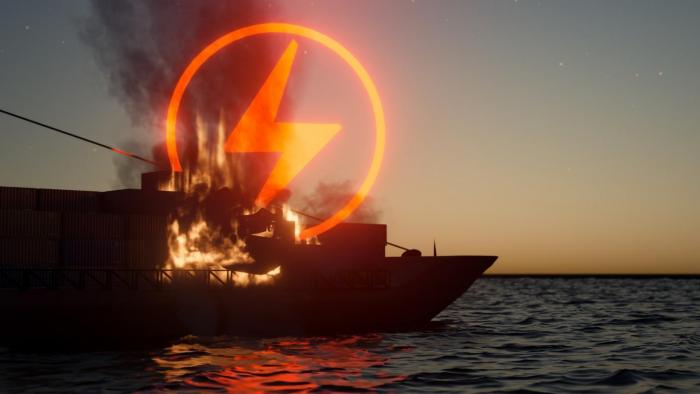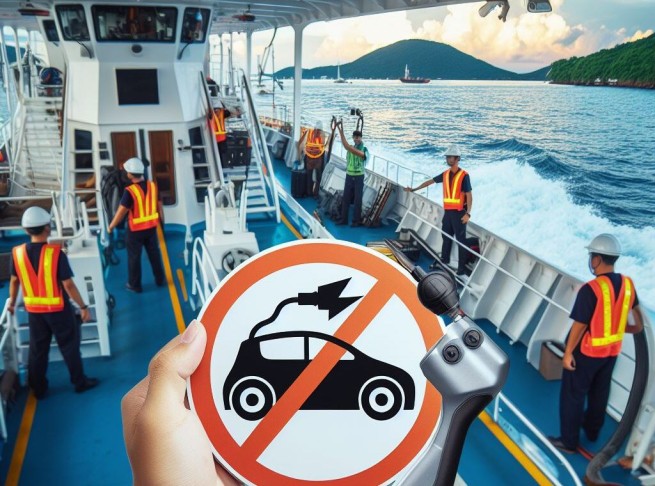Created by DALL·E 3
The Ministry of Shipping and Island Policy recommended taking measures to ban the carriage of electric vehicles on ships by issuing a circular.
Controversy over the transport of electric vehicles on ships has erupted in recent months due to fire incidents that appear to have been caused by electric vehicle batteries. Some shipping companies abroad have introduced a ban on the transport of zero-emission (environmental) vehicleswhose popularity is growing over time.
In our country the situation is largely clarified the circularissued by the Ministry of Shipping and Island Policy: “Additional measures for the transport of alternative fuel vehicles (AFVs) by E/GO/G ships” χρήσης εναλλακτικών καυσίμων (AFVs) με Ε/Γ- Ο/Γ πλοία”).
It is noted that The circular does not specify mandatory measures, but provides guidelines and recommendations to shipping companies. In particular, it is recommended to transport electric vehicles, as well as others powered by alternative fuels (hybrids, as well as those using CNG and LPG systems), on passenger and cargo ships, provided that they are not unaccompanied. In the same time it is recommended to prohibit their loading on board.

When loading electric vehicles and other alternative fuel vehicles onto a ship, their engine type and position (parking) on the ship should be marked. Crew must display the appropriate markings in a visible place on the vehicles (e.g. on the windshield). Drivers and passengers are required to immediately inform the crew if they receive an alarm from the vehicle.
It is prohibited to transport a vehicle (electric car) without accompanying persons. This applies to cars with damaged power supply systems, batteries or tanks. Responsibility for ensuring that the vehicle does not suffer damage to the power system or its batteries lies solely with the owners of these vehicles (the shipowner must determine this by any means available). At the same time, when loading an electric vehicle, it is necessary to take into account its weight (they are 25% heavier than gasoline analogue cars).
Loading must take place in an area protected by an existing CCTV system without interference. The operation of a mechanical ventilation system must be ensured (if it is an enclosed loading area or a special category garage) as defined in Directive 2009/45/EU), during loading and unloading and during the voyage. Even loading in open spaces should be given preference if available, and this is practicable.
The circular recommends, in addition to patrolling, vigilance regarding fire safety measures throughout the presence of alternative fuel vehicles on board, paying special attention to where they are parked. Even on a ship where patrol is not provided, if it has a vehicle running on alternative fuel, it must be carried out.
In addition, the Ministry of Shipping and Island Policy requestsfamiliarize patrol crews with identifying hazardous areas and fire extinguishing techniquesas well as provide the crew participating in patrols with a thermal imaging device and a toxicity meter (to detect flammable gases).
Finally, among other things, it is recommended equip ships no less than two special fire-resistant fabric coverings (capes) in each vehicle storage area, as well as no less than two fire extinguishers and self-contained breathing apparatus.







More Stories
Digital Currencies: Global Control or New Opportunities? What's Behind the Introduction of Digital Money
How much does a square meter of housing cost in the Cyclades
Electricity: subsidy only for 500 kilowatt-hours, 80% for each additional kilowatt-hour